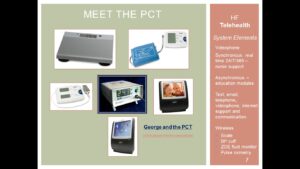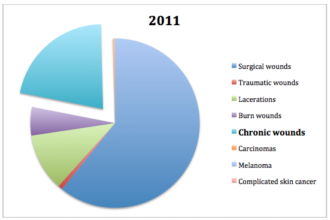Technology is everywhere. Almost every person in the world has access to computers and smartphones. Many industries are heavily relying on technological advancements to make sure they deliver to their target market. Healthcare, for one, is hugely benefitting from these advancements. While there are still restrictions, especially in terms of data privacy, the introduction of tech is pretty much welcome. When it comes to rehab clinics, does technology have a role?
The Role of Technology in Addiction Treatment
In addiction treatment, psychotherapy plays a significant role. However, psychotherapy can be a challenge to provide in an addiction treatment community because there is often a lack of resources to support its widespread implementation, especially when it comes to training treatment providers.
Cognitive Behavioral Therapy for Computer-Based Training
Associates at Yale University created a computer-based training program for Cognitive Behavioral Therapy (CBT4CBT) and tested it on complicated cases in a National Institute on Drug Abuse-funded randomized supervised experiment: cocaine-dependent patients on methadone maintenance.
The results showed that 36 percent of those who were part of the CBT4CBT classification were able to sustain abstinence from cocaine compared to 17 percent for those who did not receive the Cognitive Behavioral Therapy.
The program is useful, user-friendly, and intuitive, with six modules based strictly on a CBT manual with simple introductions to the main theories of CBT.
Online Education with Therapeutic Education System
The NIDA Clinical Trials Network (CTN) had a national, multi-site effectiveness trial to check a behavioral intervention applied via the Internet. The Therapeutic Education System (TES) package contains more than 60 interactive multimedia modules, which took inspiration from the Community Reinforcement Approach (CRA). The modules contained provisions for carrying out abstinence on the use of addictive drugs and adherence to the treatment program. The online education program also covered strengthening skills and knowledge on the prevention of relapse and diseases secondary to substance abuse such as Human Immunodeficiency Virus (HIV), Hepatitis, and sexually transmitted infections. Participants were given rewards for sticking to the program. A follow-up on the patients revealed that as much as 40% of them successfully abstained from using prohibited drugs.
Note, however, that those with less-complicated cases were not as successful, with only 26% of these participants abstaining from drug use.
After Care with A-CHESS
Many of those who undergo rehabilitation fail in achieving their goals because they lack access to structured aftercare. Why? Because most treatment programs lack the necessary follow up since they are primarily labor-intensive. Similarly, the cost of follow-ups is pretty demanding.
For this reason, only about 25% of patients stick to their program 12 months after their treatment. The Addiction-Comprehensive Health Enhancement Support System (A-CHESS) aims to address this. A-CHESS is a mobile application that allows drug abuse patients to have access to therapeutic and emotional support on a 24-hour and 7-day basis. The mobile app includes audio-guided relaxation techniques and a tracking component through the use of a Global Positioning System (GPS) that sends a notification to healthcare providers when a patient is identified to run close to a bar or other high-risk areas.
Healthcare providers can then communicate with the patients to advise them on what to do and help them stick to the program. In essence, the smartphone application afforded patients with better adherence to their therapies, preventing relapse. The mobile app is now available for download and has proven to help patients, especially those at risk to abuse alcoholic beverages.
Can Technology Impact the Future of Addiction Treatment?
All of these treatment modalities share one thing in common: the use of technology to duplicate an established in-house rehabilitation program. Often, these therapies have consistency and accuracy that is amenable to the patient. When they are brought outside, these technology-aided programs can prevent patients from relapsing and help them achieve the treatment they so deserve. Technology has advanced enough to have successful applications in the treatment process of complicated cases. However, it still has limitations; it is not all-encompassing.
For one, the distribution process must be properly implemented. There are current standing questions on how these techniques can be delivered in a cost-effective and timely manner. Replicating the lab results in the real world is challenging. For now, patients can rely on highly skilled therapists and adjunct healthcare providers to create holistic and streamlined treatment plans.
Patient cooperation still plays a significant role in achieving treatment success. While these technologies have their limitations, they can be applied, albeit on a smaller scale. Rehab clinics can use computerized treatment options to reduce bias and other subjective indicators when assessing patients before they can be released back into the real world.
Technology can still play a part in healthcare delivery, but improvements and adjustments must be made, as it cannot achieve the goals alone. There must be a marriage of traditional and technology-driven care to allow patients to get the comprehensive care they need.










